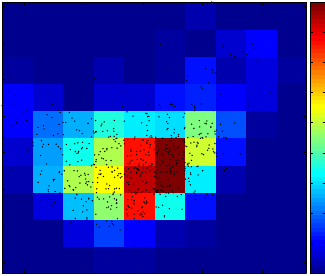Emotions in product reviews – empirics and models
David Garcia and Frank Schweitzer
IEEE International Conference on Privacy, Security, Risk, and Trust, and IEEE International Conference on Social Computing, PASSAT/SocialCom (2011)
Abstract
Online communities provide Internet users with means to overcome some information barriers and constraints, such as the difficulty to gather independent information about products and firms. Product review communities allow customers to share their opinions and emotions after the purchase of a product. We introduce a new dataset of product reviews from Amazon.com, with emotional information extracted by sentiment detection tools. Our statistical analysis of this data provides evidence for the existence of polemic reviews, as well as for the coexistence of positive and negative emotions inside reviews. We find a strong bias towards large values in the expression of positive emotions, while negative ones are more evenly distributed. We identified different time dynamics of the creation of reviews dependent on the presence of marketing and word of mouth effects. We define an agent-based model of the users of product review communities using a modeling framework for online emotions. This model can reproduce the scenarios of response to external influences, as well as some properties of the distributions of positive and negative emotions expressed in product reviews. This analysis and model can provide guidelines to manufacturers on how to increase customer satisfaction and how to measure the emotional impact of marketing campaigns through reviews data.

